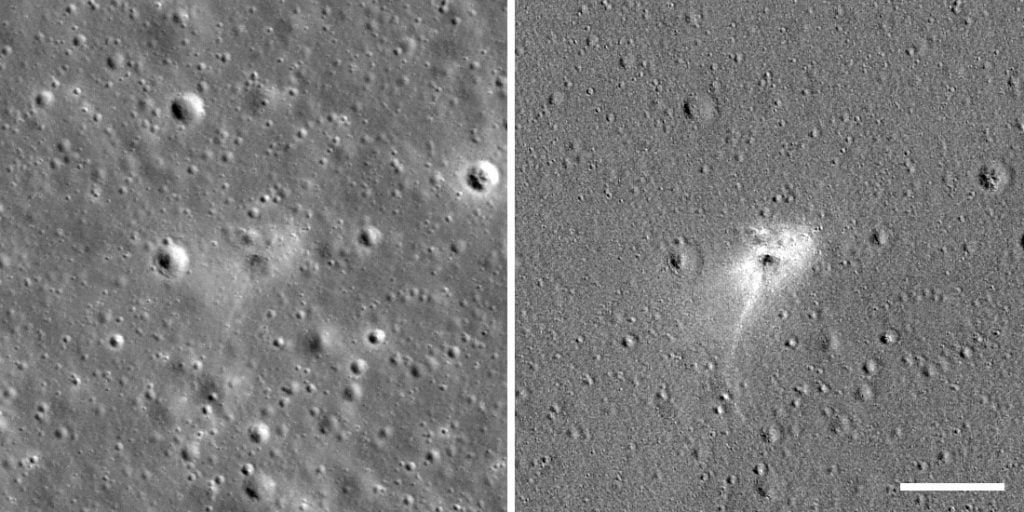NASA released a photo last week of what it says is the crash site of Israel’s Beresheet lunar lander, developed by Israeli non-profit SpaceIL.
The photo was taken by the Lunar Reconnaissance Orbiter Camera (LROC) 11 days after the spacecraft crashed into the moon’s surface on April 11, dashing Israel’s hopes of becoming the fourth country in the world (after Russia, China, and the US) to complete a controlled moon landing.
The LROC took this image from 56 miles (90 kilometers) above the surface, capturing a dark smudge, about 10 meters wide, that indicates the point of impact, NASA said. “The dark tone suggests a surface roughened by the hard landing, which is less reflective than a clean, smooth surface,” it added.
“The light halo around the smudge could have formed from gas associated with the impact or from fine soil particles blown outward during Beresheet’s descent, which smoothed out the soil around the landing site, making it highly reflective,” NASA said.
NASA said it knew the coordinates of the landing site due to radio tracking of Beresheet, and was able to reference 11 “before” images of the area taken over a decade, and three “after” images. The space organization also referenced craters previously created by similar-size spacecraft – GRAIL in 2012, LADEE in 2014 – that have struck the moon at about the same speed.
“We saw that the white tail stretching from the landing halo towards the south is a shape that’s consistent with Beresheet’s southward descent trajectory and angle of approach,” it said.
The LROC is expected to take images of the landing site when it passes the same area again on May 19.
SpaceIL was privately funded by philanthropists, including its president, Israel-South African entrepreneur Morris Khan, but received some government funding including $2 million from the Ministry of Science and Technology. The whole project cost an estimated $100 million.
Some 48 hours after the crash, SpaceIL said that it would be building a new spacecraft dubbed Beresheet 2 and launching a fresh mission to the moon.
Related posts

Israeli AI Safety Tool Among TIME’S Best Inventions For 2024

TAU Team Discovers Mechanism To Eliminate Cancerous Tumors

Ashdod Port Investing In Startups As Part Of Innovation Strategy




Facebook comments